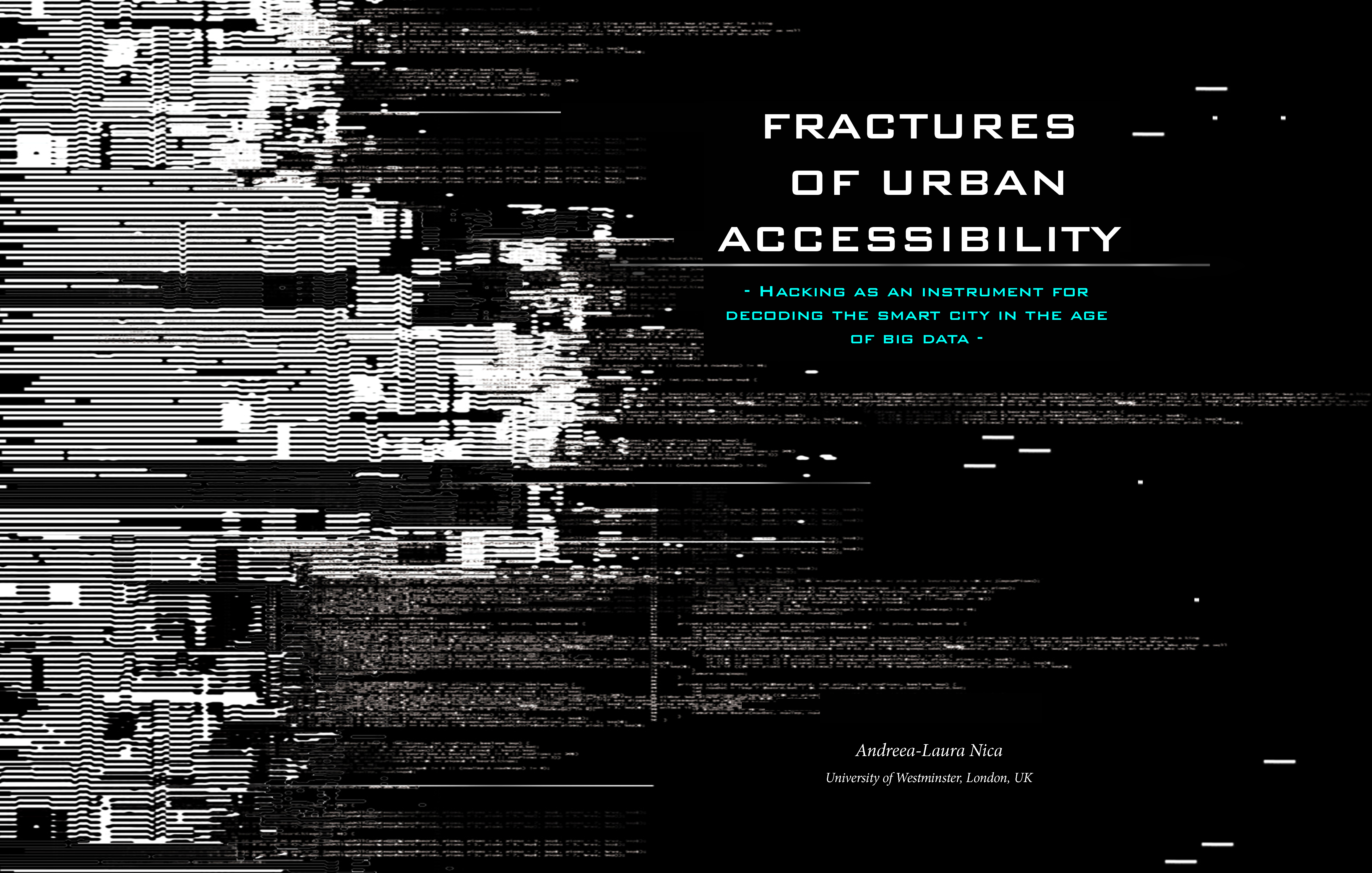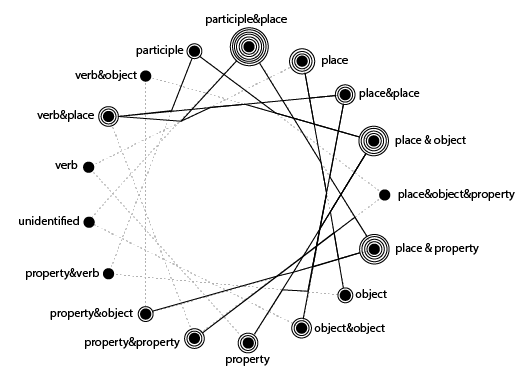PAST TALKS 2023
27 June 2023
3-5 PM CET, 9 AM EST
Fractures of Urban Accessibility.
LAURA NICA
University of Westminster
Respondent: Nikola Beim, University of Applied Arts Vienna, Austria / GSAPP, Columbia University
![]()
***
Incorporating Geotagging and Its Semantics
ELENI OUREILIDOU
Aristotle University of Thessaloniki
Respodent: Agostino Nickl, ITA, ETH Zurich
![]()
Tool for a semantic tag-text analysis.
︎︎︎ back to Past Talks 2023
3-5 PM CET, 9 AM EST
Fractures of Urban Accessibility.
Hacking as an Instrument for Decoding
the Smart City in the Age of Big Data
LAURA NICA
University of Westminster
Respondent: Nikola Beim, University of Applied Arts Vienna, Austria / GSAPP, Columbia University

Our cities are on the verge of a radical transformation, a revolution in intelligence comparable in scale to the one that, in its time, brought about industrialisation1. Countless chips and sensors that allow the objects and vehicles to be located, consumption levels and temperature to be recorded, pollution levels, population densities and flows to be measured, are recreating our cities as immense data sets. This new urban patterning appears resolved in the model of the Smart City2. Yet, as the city becomes increasingly hybrid, the danger increases; the shift from a world structured by boundaries and enclosures to a world increasingly dominated, at every scale, by connections, networks and flows, the cyberspace becomes a space dominated by data control and information values. In this instance, planners, policy experts and economists are no longer the only specialists responding to these challenges. New actors enter the stage of urbanism and raise new questions. How is data accessed, filtered and used? What can exist between 0 and 1, a pixel and its neighbour, ‘normal’ and ‘abnormal’3? Who defines who is seeing what and who establishes the end uses of data extracted from our cities?
This paper investigates the means, the significance and the potentials of data accessibility in tomorrow’s
urban environments. In an attempt to understand the vulnerabilities over the model of the Smart Cities and the lack of feedback that goes back to the citizen, the work proposes a re-think of knowledge openness policies and data commons currently available to restricted users. Firstly, the relationship between politics and digital technology will be introduced and explored, looking at issues such as algorithmic governmentality, the role of technology and code in managing the patterns obtained from the Sentient City.
The following section will provide an approach to two different examples of projects, focusing on hacking as a critical solution for representing new ways of decoding the city, of ‘opening up’ the uncertainty, irrigating alternative readings and capturing hidden layers. The paper ends with an exploration of the potential value of hacking and challenges of the future crafting of algorithmic power.
This paper investigates the means, the significance and the potentials of data accessibility in tomorrow’s
urban environments. In an attempt to understand the vulnerabilities over the model of the Smart Cities and the lack of feedback that goes back to the citizen, the work proposes a re-think of knowledge openness policies and data commons currently available to restricted users. Firstly, the relationship between politics and digital technology will be introduced and explored, looking at issues such as algorithmic governmentality, the role of technology and code in managing the patterns obtained from the Sentient City.
The following section will provide an approach to two different examples of projects, focusing on hacking as a critical solution for representing new ways of decoding the city, of ‘opening up’ the uncertainty, irrigating alternative readings and capturing hidden layers. The paper ends with an exploration of the potential value of hacking and challenges of the future crafting of algorithmic power.
***
Incorporating Geotagging and Its Semantics
in Landscape Analysis.
Textual Analysis of Urban Data through Social Media in the Neighbourhood
of “El Raval” in Barcelona
ELENI OUREILIDOU
Aristotle University of Thessaloniki
Respodent: Agostino Nickl, ITA, ETH Zurich

Tool for a semantic tag-text analysis.
In the post-digital landscape, geotagging is suggested to read the landscape as a text and to enrich the semantic layer of urban space. The appropriation of urban landscape is studied here under the scope of a dialectic between landscape architecture, programming, and technology. In that sense, geotagging would reveal collective reflections towards urban places, opening to an examination of novel applications and methodologies. These include Visual Ethnography, as introduced by Sarah Pink (2012), and Ethnocomputation, as introduced by Tedre et al. (2006). Based on that, big data landscapes and social media platforms enable new differentiated structures and models for the representation of information, opening new ways of manipulating organised information, such as the recommendation algorithms. Hence, the research suggests a visual analysis of geotagged information and the configuration of a training set for the selection of narrative artefacts from social media platforms as texts for the city. The methodology focuses on “el Raval”, a neighbourhood in Barcelona, where the “myth of el barrio Chino” framed the neighbourhood’s cultural and social fabric in the 20th century. In the end, categories of narrativity are suggested in the form of tags, like #barriochino and other sensorial and imaginary georeferenced annotations, to mediate social routines and dynamics captured by users at the level of the street.